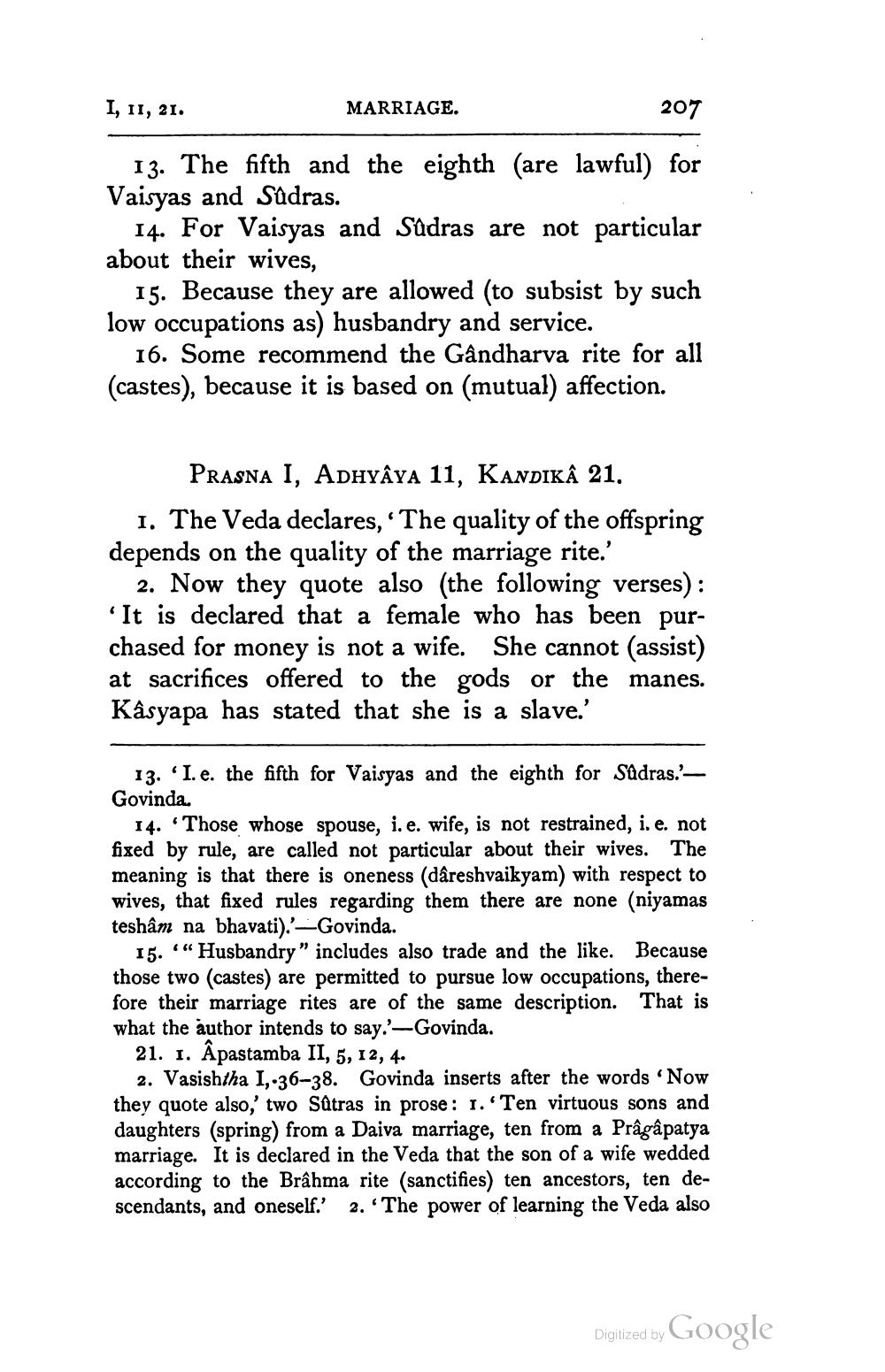________________
I, 11, 21.
MARRIAGE.
207
13. The fifth and the eighth (are lawful) for Vaisyas and Sudras.
14. For Vaisyas and Sūdras are not particular about their wives,
15. Because they are allowed (to subsist by such low occupations as) husbandry and service.
16. Some recommend the Gândharva rite for all (castes), because it is based on (mutual) affection.
PRASNA I, ADHVẬYA 11, KANDIKÂ 21. 1. The Veda declares, 'The quality of the offspring depends on the quality of the marriage rite.'
2. Now they quote also the following verses): 'It is declared that a female who has been purchased for money is not a wife. She cannot (assist) at sacrifices offered to the gods or the manes. Kasyapa has stated that she is a slave.
13. 'I.e. the fifth for Vaisyas and the eighth for Sadras.'Govinda
14. Those whose spouse, i.e. wife, is not restrained, i.e. not fixed by rule, are called not particular about their wives. The meaning is that there is oneness (dareshvaikyam) with respect to wives, that fixed rules regarding them there are none (niyamas teshâm na bhavati).'--Govinda.
15. ““Husbandry" includes also trade and the like. Because those two (castes) are permitted to pursue low occupations, therefore their marriage rites are of the same description. That is what the author intends to say.'-Govinda.
21. 1. Âpastamba II, 5, 12, 4.
2. Vasishtha I,-36-38. Govinda inserts after the words Now they quote also,' two Sätras in prose: 1. Ten virtuous sons and daughters (spring) from a Daiva marriage, ten from a Prâgâpatya marriage. It is declared in the Veda that the son of a wife wedded according to the Brâhma rite (sanctifies) ten ancestors, ten descendants, and oneself.' 2. The power of learning the Veda also
Digilized by Google




